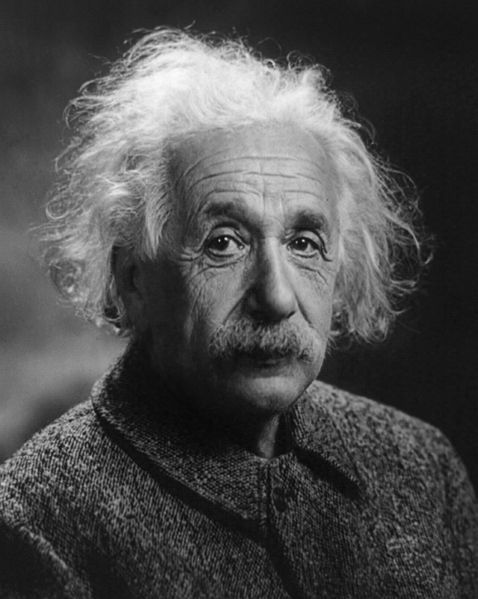Albert Einstein
 |
Albert Einstein (14 March 1879 - 18 April 1955) was a theoretical physicist. His many contributions to physics include the special and general theories of relativity, the founding of relativistic cosmology, the first post-Newtonian expansion, explaining the perihelion advance of Mercury, prediction of the deflection of light by gravity and gravitational lensing, the first fluctuation dissipation theorem which explained the Brownian movement of molecules, the photon theory and wave-particle duality, the quantum theory of atomic motion in solids, the zero-point energy concept, the semiclassical version of the Schrödinger equation, and the quantum theory of a monatomic gas which predicted Bose-Einstein condensation. Einstein is best known for his theories of special relativity and general relativity. He received the 1921 Nobel Prize in Physics "for his services to Theoretical Physics, and especially for his discovery of the law of the photoelectric effect." Einstein published more than 300 scientific and over 150 non-scientific works. He is often regarded as the father of modern physics.
|
You can find some Albert Einstein Quotes as follows:
|
|
Sources for videoclip: http://www.youtube.com/watch?v=ehsfmAlEXuE
Sources for this text: About.com http://inventors.about.com/library/inventors/bleinstein.htm |
Take a minute and think: Why those persons described in the Leadership in Science and Technology section were leaders? What were the similarities and differences in their leadership behavior and styles? Find more resources if needed to answer to these questions. Make notes on your personal portfolio.
Licensed under the Creative Commons Attribution Non-commercial No Derivatives 3.0 License
Sirje Virkus, Tallinn University, 2009